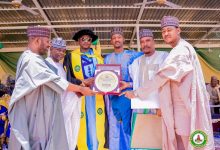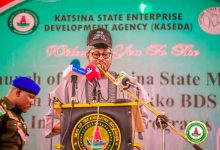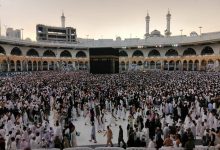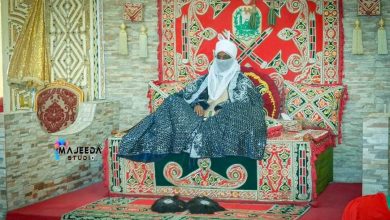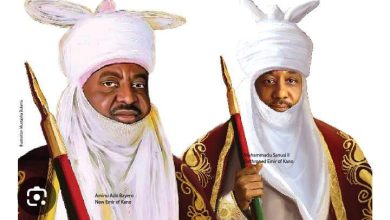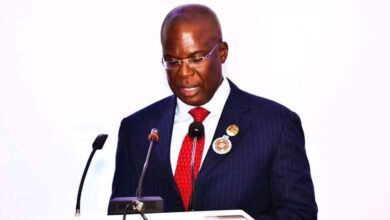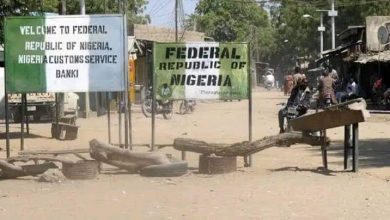Malam Nuhu Ribadu: A Respected Figure in Nigerian Anti-Corruption Effor
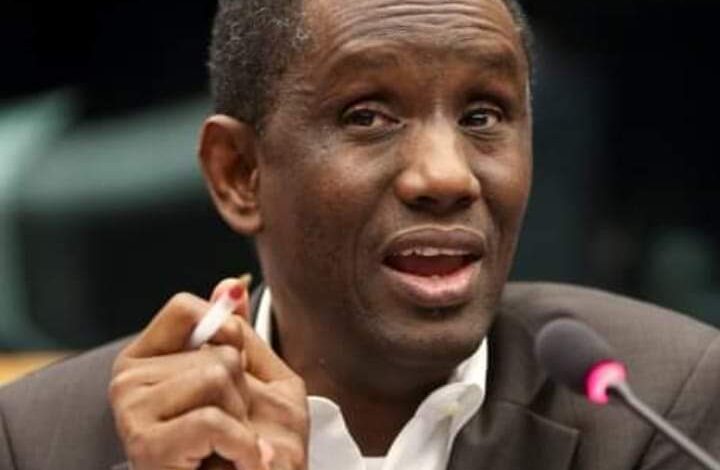
Introduction: Malam Nuhu Ribadu is a prominent Nigerian figure known for his remarkable contributions to the fight against corruption in the country. With an impressive career spanning law enforcement, public service, and international engagements, Ribadu has played a vital role in promoting transparency, accountability, and good governance. In this post, we will delve into the life, achievements, and impact of Malam Nuhu Ribadu, highlighting his significant role in Nigeria’s anti-corruption efforts.
- Early Life and Education: Malam Nuhu Ribadu was born on November 21, 1960, in Yola, Nigeria. He hails from Adamawa State and comes from a family with a strong background in public service. Ribadu obtained his primary and secondary education in Nigeria before pursuing a Bachelor of Laws (LLB) degree from the Ahmadu Bello University, Zaria. He later earned a Master of Laws (LLM) degree from the Nigerian Law School.
- Career in Law Enforcement: Ribadu’s career in law enforcement began when he joined the Nigeria Police Force in 1985. His commitment and dedication to his work led to rapid promotions and recognition. In 2003, Ribadu was appointed as the pioneer chairman of the Economic and Financial Crimes Commission (EFCC), a crucial institution responsible for combating corruption and financial crimes in Nigeria.
- Fight Against Corruption: As the chairman of the EFCC, Ribadu implemented numerous initiatives to tackle corruption head-on. Under his leadership, the EFCC investigated and prosecuted high-profile cases of corruption, money laundering, and financial fraud. His efforts resulted in significant recoveries of stolen public funds and the conviction of several influential individuals involved in corrupt practices.
- International Recognition: Ribadu’s relentless fight against corruption gained international recognition and admiration. He received accolades from various organizations, including the United Nations and Transparency International, for his significant contributions to anti-corruption efforts. Ribadu was appointed as a member of the United Nations Secretary-General’s High-Level Panel on International Financial Accountability, Transparency, and Integrity (FACTI Panel).
- Impact and Legacy: Malam Nuhu Ribadu’s efforts have had a lasting impact on Nigeria’s fight against corruption. His tenure at the EFCC brought about increased awareness of corruption issues and demonstrated the possibility of holding corrupt individuals accountable. Ribadu’s work helped lay the foundation for subsequent anti-corruption initiatives in Nigeria and inspired a new generation of activists committed to promoting integrity and good governance.
- Post-EFCC Career: After leaving the EFCC, Ribadu remained actively engaged in public service and advocacy. He has served as a visiting fellow at various institutions, including the Center for Global Development and the Center for Strategic and International Studies. Ribadu also contested in Nigeria’s presidential election in 2011, advocating for transparency, accountability, and the rule of law.
Conclusion: Malam Nuhu Ribadu’s name is synonymous with the fight against corruption in Nigeria. His unwavering commitment, courage, and determination have made him a respected figure in the country and beyond. Through his role as the EFCC chairman, Ribadu demonstrated that corruption can be challenged and that accountability is crucial for national development. His contributions continue to inspire individuals and institutions to work towards creating a corruption-free Nigeria and a better future for all.
Malam Nuhu Ribadu was born on November 21, 1960, in Yola, the capital city of Adamawa State in Nigeria. He comes from a family with a strong tradition of public service. His father, Alhaji Ribadu, was a renowned traditional ruler and jurist.
Ribadu received his early education in Yola and later pursued higher studies at the prestigious Ahmadu Bello University in Zaria, Nigeria. He obtained a Bachelor of Laws (LLB) degree from the university, laying the foundation for his legal career.
Driven by a thirst for knowledge and a desire to deepen his understanding of the law, Ribadu continued his legal education at the Nigerian Law School, where he earned a Master of Laws (LLM) degree. This educational background equipped him with a strong legal foundation that would later prove instrumental in his endeavors to combat corruption and promote good governance.
Ribadu’s educational journey instilled in him a deep sense of responsibility and a commitment to the pursuit of justice. His academic achievements laid the groundwork for his remarkable career in law enforcement and anti-corruption efforts.
The values and lessons Ribadu acquired during his early life and education would shape his character and drive his passion to address the pervasive issue of corruption in Nigeria. These formative experiences provided him with the knowledge, skills, and determination needed to navigate the complex world of law enforcement and make a significant impact on the fight against corruption in his country.
Malam Nuhu Ribadu’s career in law enforcement is marked by his dedication, integrity, and unwavering commitment to upholding justice and combating corruption. Here are key highlights of Ribadu’s notable career in law enforcement:
- Nigeria Police Force: Ribadu joined the Nigeria Police Force in 1985, beginning his journey in law enforcement. He served in various capacities, gaining valuable experience and honing his skills as a police officer.
- Economic and Financial Crimes Commission (EFCC): In 2003, Ribadu was appointed as the pioneer chairman of the Economic and Financial Crimes Commission (EFCC), a specialized agency tasked with investigating and prosecuting economic and financial crimes in Nigeria. Under his leadership, the EFCC gained prominence for its proactive stance against corruption and its commitment to recovering stolen assets.
- Fight Against Corruption: As the chairman of the EFCC, Ribadu initiated a relentless crackdown on corruption and financial crimes in Nigeria. He spearheaded high-profile investigations, targeting influential individuals involved in corrupt practices, money laundering, and embezzlement of public funds. His efforts led to the recovery of significant amounts of stolen assets and the successful prosecution of numerous corrupt individuals.
- International Collaborations: Ribadu actively sought international collaborations to strengthen Nigeria’s anti-corruption efforts. He engaged with organizations such as Interpol, the United Nations Office on Drugs and Crime (UNODC), and international law enforcement agencies to enhance cooperation in tackling cross-border financial crimes and extraditing fugitives involved in corruption cases.
- Recognition and Impact: Ribadu’s work at the EFCC received both national and international recognition. He received several awards for his exceptional efforts in fighting corruption and promoting good governance. Ribadu’s leadership at the EFCC brought greater awareness to the damaging effects of corruption on Nigerian society and demonstrated that no individual, regardless of their status, was above the law.
- Challenging Times and Resilience: Ribadu faced challenges during his tenure, including threats to his life and attempts to undermine his anti-corruption efforts. However, his unwavering resolve and dedication to the cause of justice propelled him forward, earning him the respect and admiration of many Nigerians who saw him as a symbol of hope and a catalyst for change.
Malam Nuhu Ribadu’s career in law enforcement, particularly his pivotal role as the chairman of the EFCC, has left an indelible mark on Nigeria’s fight against corruption. His relentless pursuit of justice and commitment to upholding the rule of law have served as an inspiration to many and have paved the way for subsequent anti-corruption efforts in the country. Ribadu’s work continues to resonate, highlighting the importance of accountability, transparency, and the ongoing battle against corruption.
Malam Nuhu Ribadu’s fight against corruption has been characterized by his unwavering commitment to promoting transparency, accountability, and good governance in Nigeria. Throughout his career, he has implemented numerous initiatives and taken bold actions to tackle corruption head-on. Here are key aspects of Ribadu’s fight against corruption:
- Establishing the EFCC: As the pioneer chairman of the Economic and Financial Crimes Commission (EFCC), Ribadu played a pivotal role in establishing and shaping the institution. Under his leadership, the EFCC became a prominent anti-corruption agency with a mandate to investigate, prosecute, and prevent economic and financial crimes in Nigeria.
- High-Profile Investigations and Prosecutions: Ribadu spearheaded high-profile investigations and prosecutions of individuals involved in corrupt practices. His efforts targeted politicians, public officials, and businessmen implicated in embezzlement, bribery, money laundering, and other financial crimes. These investigations sent a strong message that no one was above the law, regardless of their status or influence.
- Asset Recovery and Repatriation: Ribadu’s anti-corruption efforts led to significant recoveries of stolen public funds and assets. Through diligent investigations and international collaborations, he successfully traced and repatriated funds held in foreign accounts, returning them to Nigeria’s treasury. These efforts aimed to recover and restore stolen resources for the benefit of the Nigerian people.
- Strengthening Anti-Corruption Institutions: Ribadu recognized the importance of building strong and effective anti-corruption institutions. He worked towards enhancing the capacity and professionalism of the EFCC by recruiting and training competent personnel. Ribadu also advocated for legislative reforms to strengthen anti-corruption laws and ensure greater independence for anti-corruption agencies.
- International Engagement: Ribadu actively engaged with international organizations and counterparts to foster international cooperation in the fight against corruption. He participated in global forums and collaborations, sharing Nigeria’s experiences and learning from best practices in combating corruption. Ribadu’s involvement in international initiatives highlighted Nigeria’s commitment to fighting corruption on a global scale.
- Awareness and Public Engagement: Ribadu’s tenure as EFCC chairman brought increased public awareness about the damaging effects of corruption on Nigeria’s development and well-being. Through media campaigns, public lectures, and grassroots engagements, he sought to sensitize the public about the need for collective action against corruption. Ribadu aimed to create a societal shift where corruption was no longer tolerated or accepted.
Malam Nuhu Ribadu’s fight against corruption has left a lasting impact on Nigeria’s anti-corruption landscape. His relentless pursuit of justice, integrity, and accountability has inspired a new generation of anti-corruption advocates and has helped shape the discourse around corruption in Nigeria. Ribadu’s legacy serves as a reminder that the fight against corruption requires sustained efforts, institutional reforms, and the collective commitment of both leaders and citizens to build a more transparent and prosperous Nigeria.
Malam Nuhu Ribadu’s tireless efforts in the fight against corruption in Nigeria have garnered international recognition and acclaim. His dedication to promoting transparency, accountability, and good governance has earned him accolades from various organizations and institutions. Here are some examples of international recognition received by Ribadu:
- Transparency International Integrity Award: In 2003, Ribadu was honored with the prestigious Transparency International Integrity Award. This award recognized his exceptional commitment and outstanding achievements in combating corruption in Nigeria.
- Time 100 List: Ribadu’s impactful work in the field of anti-corruption led to his inclusion in the Time 100 list in 2009. This annual list highlights the world’s most influential individuals who have made a significant impact in their respective fields.
- United Nations Recognition: Ribadu’s expertise and contributions in combating corruption were acknowledged by the United Nations. He was appointed as a member of the United Nations Secretary-General’s High-Level Panel on International Financial Accountability, Transparency, and Integrity (FACTI Panel). This appointment demonstrates the international community’s recognition of his expertise in the field of anti-corruption.
- Harvard Kennedy School Award: Ribadu was honored with the Alumni Public Service Award by the Harvard Kennedy School in recognition of his outstanding contributions to public service and his significant impact in the fight against corruption.
- Global Leadership Award: Ribadu received the Global Leadership Award from the United Nations Association of the United States of America (UNA-USA) for his exemplary leadership and dedication to combating corruption. This award underscores his global recognition as a prominent figure in the fight against corruption.
- Harvard University Visiting Fellow: Ribadu has served as a visiting fellow at Harvard University, further emphasizing his international reputation and expertise in the field of anti-corruption. As a visiting fellow, Ribadu has shared his knowledge, experiences, and insights with students and scholars, contributing to the global discourse on combating corruption.
These international recognitions and honors reflect the profound impact of Ribadu’s work in Nigeria’s anti-corruption efforts. They affirm his dedication, leadership, and significant contributions to promoting transparency, accountability, and good governance not only within Nigeria but also on the global stage. Ribadu’s achievements continue to inspire others in the fight against corruption and serve as a testament to the importance of integrity and ethical leadership in building a more just and equitable society.
arewanahiya.com
